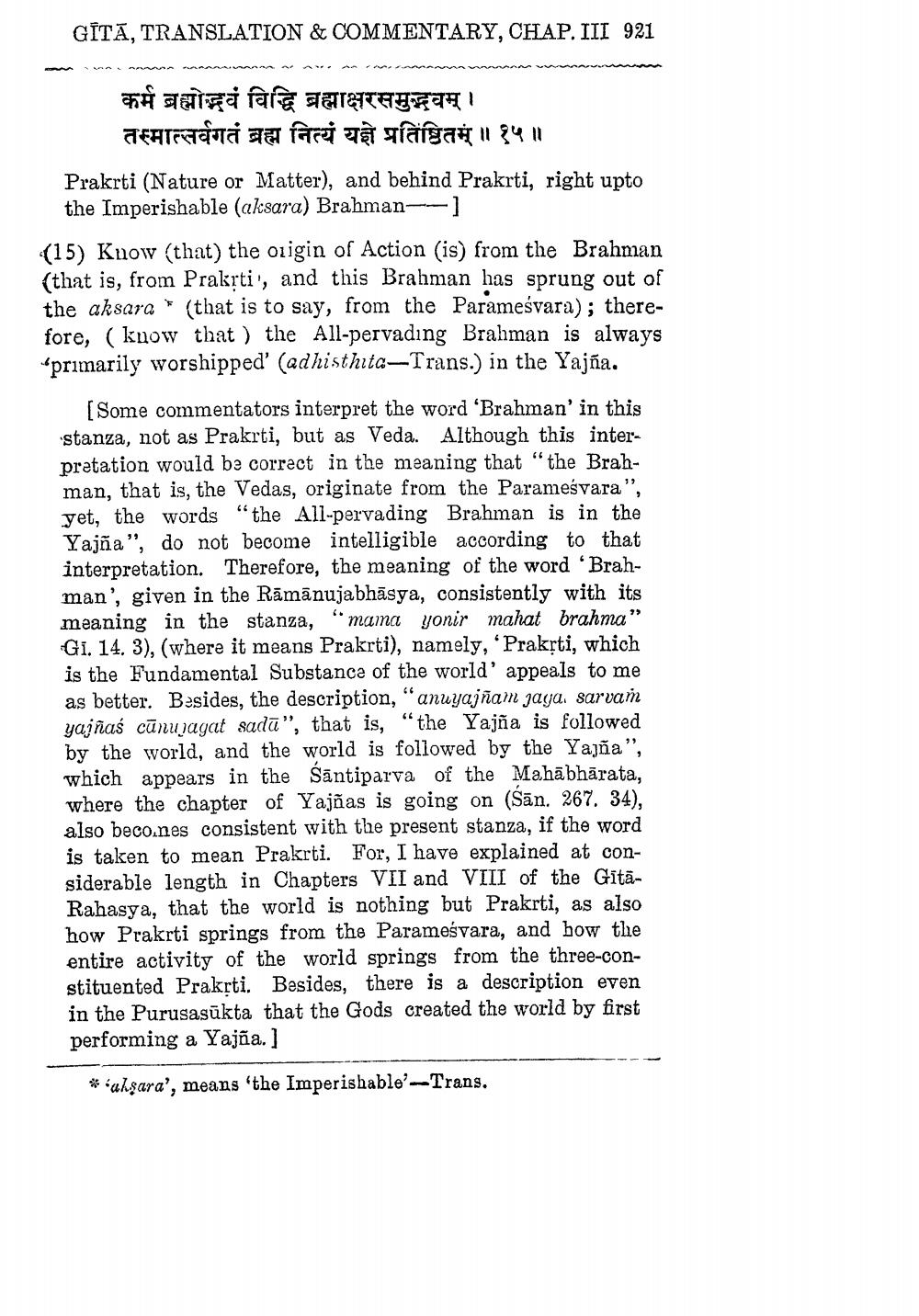________________
GĪTĀ, TRANSLATION & COMMENTARY, CHAP. III 921
कर्म ब्रह्मोद्भवं विद्धि ब्रह्माक्षरसमुद्भवम् । तस्मात्सर्वगतं ब्रह्म नित्यं यज्ञे प्रतिष्ठितम् ॥१५॥
Prakrti (Nature or Matter), and behind Prakrti, right upto the Imperishable (aksara) Brahman
(15) Know (that) the origin of Action (is) from the Brahman (that is, from Prakrti', and this Brahman has sprung out of the aksara * (that is to say, from the Parameśvara); therefore, ( kuow that ) the All-pervadıng Brahman is always primarily worshipped' (adhisthita—Trans.) in the Yajña.
(Some commentators interpret the word 'Brahman' in this stanza, not as Prakrti, but as Veda. Although this interpratation would be correct in the meaning that "the Brahman, that is, the Vedas, originate from the Parameśvara", yet, the words "the All-pervading Brahman is in the Yajña", do not become intelligible according to that interpretation. Therefore, the meaning of the word 'Brahman', given in the Rāmānujabhāsya, consistently with its meaning in the stanza, "mama yonir mahat brahma" Gi. 14. 3), (where it means Prakrti), namely, 'Praksti, which is the Fundamental Substance of the world' appeals to me as better. Besides, the description, “anuyajñam gaya. sarvam yajñaś cūnujagat sadā", that is, “the Yajña is followed by the world, and the world is followed by the Yajña", which appears in the Sāntiparva of the Mahābhārata, where the chapter of Yajñas is going on (Sān. 267. 34), also beco.nes consistent with the present stanza, if the word is taken to mean Prakrti. For, I have explained at considerable length in Chapters VII and VIII of the GītāRahasya, that the world is nothing but Prakrti, as also how Prakrti springs from the Parameśvara, and how the entire activity of the world springs from the three-constituented Prakrti. Besides, there is a description even in the Purusasūkta that the Gods created the world by first performing a Yajña.]
*íuhsara', means 'the Imperishable’--Trans.




